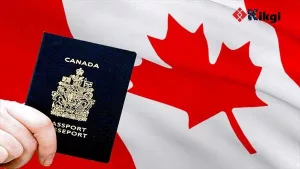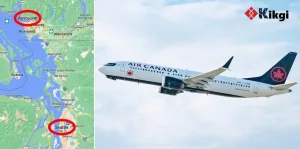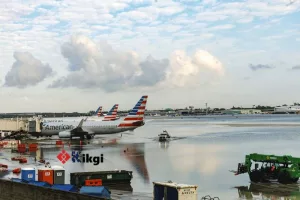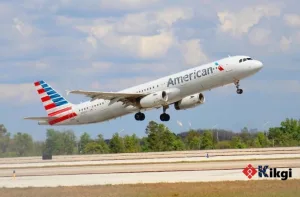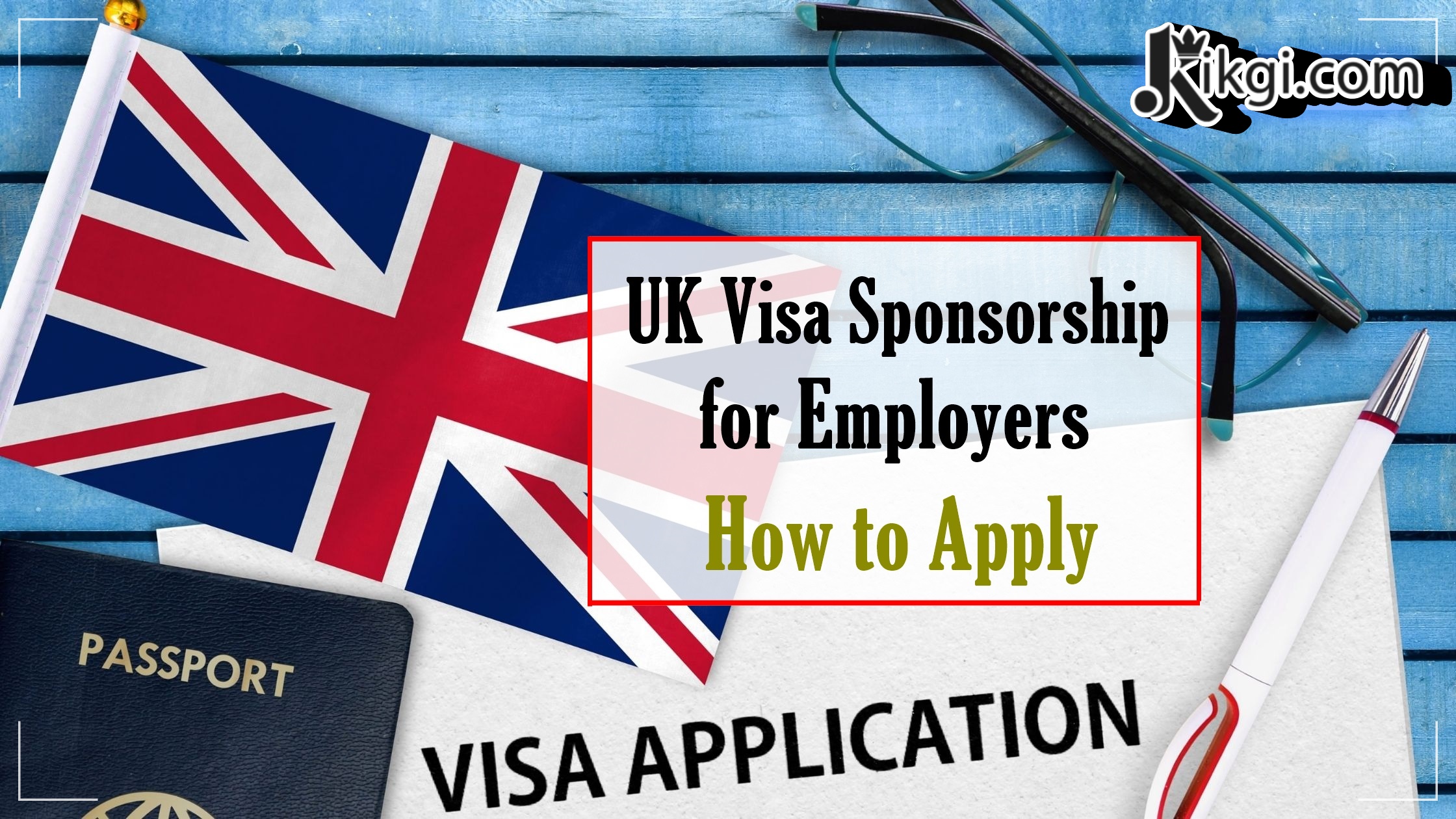
Find out what to do when applying for UK visa sponsorship for employers. You’ll usually need a sponsor licence to employ someone to work for you from outside the UK. This includes citizens of the EU, Iceland, Liechtenstein, Norway and Switzerland who arrived in the UK after 31 December 2022.
This includes unpaid work, like running a charity.
You will not need a licence to sponsor certain groups, for example:
- Irish citizens
- those with settled or pre-settled status under the EU Settlement Scheme
- those with indefinite leave to remain in the UK
Sponsoring someone does not guarantee that they’ll get a visa to work for you in the UK.
Eligibility
To get a licence as an employer, you cannot have:
- unspent criminal convictions for immigration offences or certain other crimes, such as fraud or money laundering
- had a sponsor licence revoked in the last 12 months
You’ll need appropriate systems in place to monitor sponsored employees and people to manage sponsorship in your business.
UK Visas and Immigration (UKVI) will review your application form and supporting documents. They may visit your business to make sure you’re trustworthy and capable of carrying out your duties.
ob suitability
You can sponsor a worker if the job they’re going to do has a suitable rate of pay and skill level, or meets the other criteria needed for their visa.
job suitability, if you’re sponsoring:
- a skilled worker
- a health or care worker
- a worker on any type of ‘Global Business Mobility’ visa (senior or specialist worker, graduate trainee, secondment worker, UK expansion worker or service supplier)
- a scale-up worker
- a worker on a government-authorised exchange
- a seasonal worker
- a worker on an International Sportsperson visa
- a worker on an international agreement
- a creative worker
- a charity worker
- a minister of religion or religious worker
Additional requirements for religious workers
You’ll usually have to advertise any job you offer to someone with a Religious Worker visa unless it’s a non-essential position or involves living within a religious order (such as a monk or nun).
You must keep records of when you do not have to advertise the job. You need to prove that there is not a suitable person to take the role, who does not require sponsorship.
Additional requirements for creative workers
Creative jobs done by someone on a Creative Worker visa include:
- ballet dancers and other dancers
- film and TV performers
- theatre and opera performers
- film and TV workers
- models
For creative jobs, you must make sure that either:
- you comply with the creative worker’s code of practice (if it exists for that occupation)
- the job is on the shortage occupations list
If the job is not on the shortage occupation list, and there is no code of practice, you need to check that the job cannot be done by a worker who does not need sponsoring.
If you are sponsoring a creative worker under 16
You may need to get a child performance license if the worker is taking part in:
- films, plays, concerts or other public performances that the audience pays to see, or that take place on licensed premises
- paid modelling assignments
Job suitability
You must make sure that the person running the event applies at least 21 days before the event.
Additional requirements for workers on an International Sportsperson visa
For sporting jobs that will be done by someone on an International Sportsperson visa, you must get an endorsement letter from the relevant governing body.
Sponsoring under-18s
You can only sponsor a foreign worker under 18 on the:
- an International Sportsperson visa – they must be 16 or over
- a Creative Worker visa – there’s no minimum age
- a Government Authorised Exchange visa – there’s no minimum age
You cannot sponsor a foreign worker under 18 on any other visa.
Types of licence
The licence you need depends on whether the workers you want to fill your jobs are:
- ‘Workers’ – for skilled or long-term employment
- ‘Temporary workers’ – for specific types of temporary employment
You can apply for a license covering one or both types of workers.
Worker licence
A ‘Worker’ licence will let you sponsor people in different types of skilled employment. The skilled work can be for a short time, long-term or permanent depending on the worker’s visa. Canada visa lottery 2023/2024 – how you can apply
The licence is split into:
- Skilled Worker – the role must meet the job suitability requirements
- Senior or Specialist Worker visa (Global Business Mobility) – for multinational companies which need to transfer established employees to the UK, previously the Intra-company Transfer visa
- Minister of Religion – for people coming to work for a religious organisation
- International Sportsperson – for elite sportspeople and coaches who will be based in the UK
If you’re sponsoring a scale-up worker
Your sponsorship responsibilities as a sponsor for a scale-up worker will end 6 months after they get permission to come to or stay in the UK.
After that, a scale-up worker can do any of the following until their visa expires:
- continue working for you without getting a new certificate of sponsorship
- change jobs without getting a new sponsor
UK visa sponsorship for employers
Sponsorship management roles
You need to appoint people within your business to manage the sponsorship process when you apply for a licence.
The main tool they’ll use is the sponsorship management system (SMS).
The roles are:
- authorising officer – a senior and competent person responsible for the actions of staff and representatives who use the SMS
- key contact – your main point of contact with UK Visas and Immigration (UKVI)
- level 1 user – responsible for all day-to-day management of your licence using the SMS
These roles can be filled by the same person or different people.
You can also appoint an optional level 2 user once you have your licence. This is an SMS user with more restricted access than a level 1 user, for example, they cannot withdraw a certificate of sponsorship.
Suitability checks
You and your staff will be checked to make sure you’re suitable for these roles. You may not get your licence if anyone involved in sponsorship has:
- an unspent criminal conviction for an offence listed in the guidance for sponsors
- been fined by UKVI in the past 12 months
- been reported to UKVI
- broken the law
- been a ‘key person at a sponsor that had its licence revoked in the last 12 months
failed to pay VAT or other excise duty
You and your allocated staff must also:
- be based in the UK most of the time
- not be a contractor or consultant contracted for a specific project
- not be subject to a bankruptcy restriction order or undertaking, or a debt relief restriction order or undertaking
- not have a history of non-compliance with sponsor requirements
Your allocated staff must usually be paid members of staff or office holders.
If you’re applying for a UK Expansion Worker sponsor licence, you can appoint an overseas worker as authorising officer if you do not have suitable staff based in the UK to do this role.
Apply for your licence
You need to apply online for your licence.
Once you’ve finished the online application, you need to send in:
the submission sheet at the end of the application
your supporting documents, if you’re asked to
Any affidavits or statutory declarations you send must be witnessed by a qualified, independent person – for example, a solicitor, Notary Public, Justice of the Peace, Commissioner for Oaths, or (in Scotland only) a Councillor.
How to send the documents
You can scan or take pictures of your submission sheet and supporting documents. Send them to the email address given on the submission sheet. Make sure your files:
- are in PDF, JPEG or PNG format
- have descriptive titles, with 25 or fewer characters
- are high enough quality to be read
If your documents are not in English or Welsh, you must include a certified translation – there’s more information in the supporting evidence guidance for sponsors.
If you cannot scan and send the documents by email, contact UK Visas and Immigration (UKVI) using the contact details on the submission sheet.
Licence fees
You need to pay a fee when you apply. The fee depends on the type of licence you’re applying for and what type of organisation you are in.
| Type of licence | Fee for small or charitable sponsors | Fee for medium or large sponsors |
| Worker | £536 | £1,476 |
| Temporary Worker | £536 | £536 |
| Worker and Temporary Worker | £536 | £ 1,476 |
| Add a Worker licence to an existing Temporary Worker licence | No fee | £940 |
| Add a Temporary Worker licence to an existing Worker licence | No fee | No fee |
How to tell if you’re a small or charitable sponsor
You’re usually a small sponsor if at least 2 of the following apply:
- your annual turnover is £10.2 million or less
- your total assets are worth £5.1 million or less
- you have 50 employees or fewer
You’re a charitable sponsor if you’re:
- a registered charity in England or Wales
- a registered charity in Scotland
- a registered charity in Northern Ireland – if you’re not on the register, you must provide proof of your charitable status for tax purposes from HM Revenue and Customs (HMRC)
- an excepted charity
- an exempt charity
- an ecclesiastical corporation established for charitable purposes
If you’re not sure which category your business fits into, contact the Business Helpdesk:
Business Helpdesk
businesshelpdesk@homeoffice.gov.uk
How long does it take to get a decision
Most applications are dealt with in less than 8 weeks. UKVI may need to visit your business.
You may be able to pay an extra £500 to get a decision within 10 working days. This service is limited to a small number of applications every working day. Faster decisions are allocated in the order that requests arrive (first come, first served).
You’ll be told how to ask for a faster decision after you apply.
Applications were refused because of a mistake
You can apply to request a review of your application if you think it was refused because:
- the caseworker processing your application made a mistake
- your supporting documents were not considered
You cannot apply just because you disagree with the decision.
Immigration skills charge
You might have to pay an additional charge when you assign a certificate of sponsorship to someone applying for a Skilled Worker or Senior or Specialist Worker visa. This is called the ‘immigration skills charge.
You must pay the immigration skills charge if you’re applying for a visa from:
- outside the UK to work in the UK for 6 months or more
- inside the UK for any length of time
When you do not need to pay
You will not have to pay the charge if you’re sponsoring someone with one of the following occupation codes:
- chemical scientists (2111)
- biological scientists and biochemists (2112)
- physical scientists (2113)
- social and humanities scientists (2114)
- natural and social science professionals not elsewhere classified (2119)
- research and development managers (2150)
- higher education teaching professionals (2311)
- clergy (2444)
- sports players (3441)
- sports coaches, instructors or officials (3442)
You also might not have to pay the charge if you’re sponsoring a worker who was assigned a certificate before 6 April 2017 – there’s more information in the immigration skills charge guidance for sponsors.
You will not need to pay the charge for any of the worker’s dependants, for example, their partner or child.
If you’re sponsoring someone to study in the UK and they switch to a work visa
You will not have to pay the charge if they switch to either a Skilled Worker or Senior or Specialist Worker visa and then extend their stay on the new visa.
If the person you’re sponsoring changes jobs
If you’ve assigned a certificate of sponsorship to someone in your organisation who then moves to a new job in your organisation, you’ll need to assign them a new certificate. They will use this to apply for a new visa.
You only need to do this if the new job has a different occupation code.
You must pay the immigration skills charge for the full length of your visa. If the new certificate of sponsorship allows the worker more time on their visa, you’ll need to pay for this extra time.
You do not need to pay the additional immigration skills charge if the new certificate of sponsorship does not extend the time on your sponsored worker’s visa.
How to pay
You pay the immigration skills charge when you assign a certificate of sponsorship to the worker.
How much does it cost
The amount you need to pay is based on:
- the size of your organisation
- how long the worker will work for you, using the start and end dates on their sponsorship certificate
| Period | Small or charitable sponsors | Medium or large sponsors |
| First 12 months | £364 | £1,000 |
| Each additional 6 months | £182 | £500 |
How to tell if you’re a small or charitable sponsor
You’re usually a small sponsor if at least 2 of the following apply:
- your annual turnover is £10.2 million or less
- your total assets are worth £5.1 million or less
- you have 50 employees or fewer
You’re a charitable sponsor if you’re:
- a registered charity in England or Wales
- a registered charity in Scotland
- a registered charity in Northern Ireland – if you’re not on the register, you must provide proof of your charitable status for tax purposes from HM Revenue and Customs (HMRC)
- an excepted charity
- an exempt charity
- an ecclesiastical corporation established for charitable purposes
If you’re not sure which category your business fits into contact the Business Helpdesk:
Business Helpdesk
businesshelpdesk@homeoffice.gov.uk
How much to pay based on how long the worker will work for you
If the worker will be in the UK for longer than 6 months but less than a year, you must pay for at least 12 months.
You must pay the full charge in one go.
The longest you can sponsor a worker for is 5 years, so the most you’ll have to pay is:
- £1,820 (5 x £364) if you’re a small or charitable sponsor
- £5,000 (5 x £1,000) if you’re a medium or large sponsor
UK Visas and Immigration (UKVI) will contact you if you do not pay the charge or pay the wrong amount. You’ll have 10 working days to pay the charge – the worker’s visa application will be refused if you do not.
Refunds
You’ll get a full refund if the worker’s visa application is:
- refused or withdrawn
- successful, but they do not come to work for you
You’ll get a partial refund if the worker:
- gets less time on their visa than you sponsored them for
- starts working for you but then changes to another sponsor
- leaves their job before the end date on their certificate of sponsorship
You’ll also get a partial refund if you paid the medium or large sponsor fee when assigning the certificate, but had already notified UKVI that you’re now a small or charitable sponsor.
How long it takes
You usually get a refund within 90 days of:
- telling UKVI that the worker did not come to work for you
- the expiration date on the worker’s certificate of sponsorship, if they did not use it to apply for a visa
- the date the worker’s visa application is refused or withdrawn
- the date you assigned the certificate of sponsorship if you had already notified UKVI that you became a small or charitable sponsor
If the worker’s visa application is refused, they can ask for the decision to be reviewed. This is known as an ‘administrative review’.
If they do not ask for an administrative review, you’ll get a refund within 90 days of the deadline for applying for one.
You’ll get a refund within 90 days of the administrative review being dismissed if the worker applied for one and was unsuccessful.
Recommended: Working and Living in the UK – Immigrate to the UK


